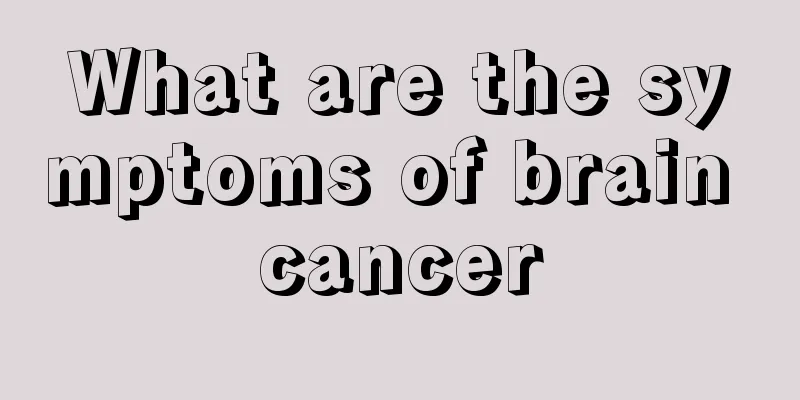What are the symptoms of brain cancer

|
Typical symptoms of brain cancer 1. Onset The disease usually progresses slowly, with a course ranging from 1 to 2 months to several years. Some cases may present with acute or subacute onset, and may even result in stroke. The latter is mostly due to the high degree of malignancy of the tumor, rapid progression, or secondary changes such as hemorrhage, necrosis, and cystic changes in the tumor. 2. Increased intracranial pressure Symptoms include the "three main signs", namely headache, vomiting and optic disc edema. 3. Focal symptoms It depends on the location of the intracranial tumor. Common focal symptoms include motor and sensory dysfunction, manifested as limb weakness, paralysis and numbness, convulsions or epileptic seizures, visual impairment, visual field loss, olfactory impairment, sensorineural deafness, language impairment, imbalance, intellectual decline, mental symptoms, endocrine disorders, developmental abnormalities, etc. They often form different syndromes. The exact cause of intracranial tumors is not yet fully understood. Possible causative factors include: 1. Oncogenes and genetic factors Tumor molecular biology studies have shown that there are two types of genes that are closely related to the occurrence and development of tumors. The activation and overexpression of oncogenes induce tumor formation, while the presence and expression of anti-cancer genes help inhibit the occurrence of tumors. 2. Physical factors Radiation can increase the risk of tumor development. 3. Chemical factors The main chemical factors are anthracene compounds, such as methylcholanthracene, benzene, methylnitrosamine, ethylnitrosamine, etc. Among them, ethylnitrosourea is particularly prone to carcinogenesis during the perinatal period. 4. Oncogenic viruses After the virus invades the cell, it changes its genetic characteristics, causing it to proliferate uncontrollably. Treatment principles: surgical treatment is the main method, supplemented by radiotherapy, chemotherapy, etc. Diet adjustment: Brain tumor patients should adopt a high-protein, high-vitamin and high-calorie diet. Protein in the diet can be obtained from animal foods and bean foods, such as fish, eggs, milk and bean products. High-vitamin foods can be eaten more fresh vegetables and fruits, such as apples, oranges and various green leafy vegetables. High-calorie foods can be obtained from easily digestible carbohydrate foods, such as chocolate. |
<<: What is the clinical knowledge about bladder cancer?
>>: Effective ways to diagnose bladder cancer at early stage
Recommend
Why does my stomach always hurt?
Some people always feel bloating and pain in thei...
Freehand leg training movements
More and more people are joining the ranks of reg...
What is the normal temperature on the armpit thermometer?
The armpit temperature of the thermometer is gene...
How long does it take for acute mental disorder to heal
Acute mental disorder is a mental illness. When i...
How to treat hepatic duct stones better
The treatment of patients with bile duct stones n...
How to prevent pancreatic cancer
People who like to eat high-fat, high-calorie foo...
What are the symptoms of ovarian cancer
Hello everyone, today we have prepared some knowl...
What to do if your hair is not black? Just eat these foods well
Everyone wants to have black hair, but for variou...
The reason why urticaria has not been cured
Urticaria is a relatively common skin disease. If...
If a man has the wrong posture, it can really cost his life
As the saying goes, "sit like a bell", ...
TCM constipation classification and treatment
Nowadays, many people suffer from constipation du...
What are the hazards of lung cancer to human health? Six major hazards of lung cancer that you must know
Lung cancer is a common malignant tumor of the lu...
Possible physical and psychological manifestations of esophageal cancer patients
Esophageal cancer is a very common malignant tumo...
How to do postoperative care for ovarian cancer
Ovarian cancer is a disease that most people will...
How to wash a stained white shirt
In life, suits are often worn on formal occasions...









